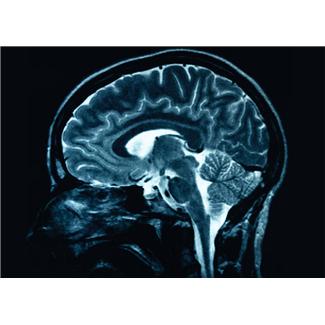Scientists have estimated for the first time the extent to which genes determine changes in intelligence across the human life course.
The study found that genetic factors may account for about 24 per cent of changes in intelligence between childhood and old age.
The findings also suggest that many of the genes that affect intelligence in childhood also influence intelligence in old age, according to the study published in Nature.
The study, by researchers at the Universities of Edinburgh and Queensland and Aberdeen suggests that the largest influence on changes in intelligence is probably environmental.
Identifying genetic influences on intelligence could help us to understand the relationship between knowledge and problem solving and an individual’s outcomes in life, and especially to understand why some people age better than others in terms of intelligence.
The researchers combined DNA analysis with data from people who took intelligence tests aged 11 and again aged 65 to 79.
The scientists examined more than half a million genetic markers in about 2,000 people to work out how genetically similar they were, even though they were not related.
The new findings were made possible because Scotland has a rich source of cognitive test data. In June 1932 and June 1947. Intelligence tests were carried out on almost all children born in Scotland in 1921 and 1936, respectively. For the present study, about 2000 of these people were traced and re-tested in old age.
Professor Ian Deary of the University of Edinburgh’s Centre for Cognitive Ageing and Cognitive Epidemiology, said: “Until now, we have not had an estimate of how much genetic differences affect how intelligence changes across a lifetime. These new findings were possible because our research teams were able to combine a range of valuable resources. The results partly explain why some people’s brains age better than others. We are careful to suggest that our estimates do not have conventional statistical significance, but they are nevertheless useful because such estimates have been unavailable to date.”
Professor Peter Visscher of the University of Queensland, said: “Unique data and new genome technologies combined with novel analysis methods allowed us to tackle questions that were not answerable before. The results also strongly suggest how important the environment is helping us to stay sharp as we age. Neither the specific genetic nor environmental factors were identified in this research. Our results provide the warrant for others and ourselves to search for those.”
Professor Paul Haggarty from the University of Aberdeen Rowett Institute of Nutrition and Health said: "The extensive historical information collected in the Aberdeen and Lothian cohorts included in this study will also make them particularly useful when trying to track down the precise way in which genes and the environment interact to influence cognition throughout life."
Professor Emeritus of Mental Health at the University of Aberdeen, Lawrence Whalley said: "The Nature research report is a milestone in a long-term research programme that began in Aberdeen in 1997 and was expanded to Edinburgh in 2000. This research collaboration between the universities of Aberdeen and Edinburgh has yielded over 100 joint scientific papers that have added considerably to our understanding of mental decline in old age, and the beginnings of dementia.
“In this paper, our already substantial collaboration was strengthened by novel methods of data analysis developed by a team in Australia. Using unique Aberdeen and Edinburgh data, with our Australian colleagues we were able to tease apart the overall effects of genes and the environment on causes and courses of mental decline. These findings will encourage others working with complex diseases of old age to apply the same methods to their findings from long-term ageing research."
The study was supported by funding from the Age UK (Disconnected Mind project), the UK’s Biotechnology and Biological Sciences Research Council (BBSRC), The Royal Society, The Chief Scientist Office of the Scottish Government, the Wellcome Trust, the Alzheimer’s Research Trust, the Australian Research Council, the National Health and Medical Research Council (Australia), and the Royal Society of Edinburgh.
For more information on the Aberdeen Birth Cohort who provided some of the data for the study visit www.abdn.ac.uk/aberdeen-birth-cohort/.


